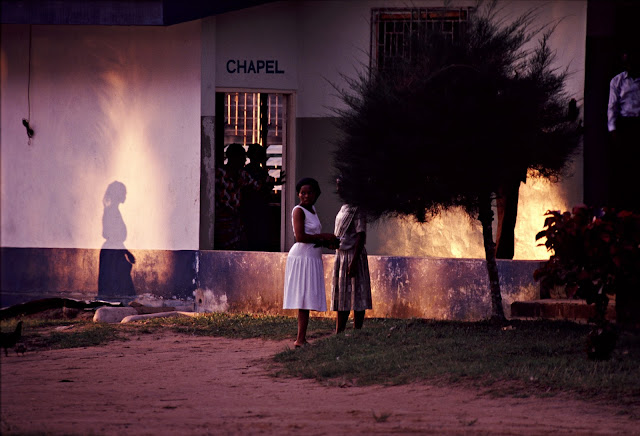Can horses actually laugh? Did this one?
Blog Note: This post is adapted and reposted from July, 2020 because it's important to remind ourselves frequently what photography is all about.
Photography is a tool with many
uses. It can be used to make portraits, report the news, photograph weddings, fashion,
landscapes, architecture, and products for sale -- its uses are almost endless.
Yet, photography, alone among the arts, has an unique ability that goes far
beyond its utilitarian applications. It is the sense of wonder.
As distinguished from other visual
media, the art of photography is primarily the art of seeing. A photograph is created at the instant of exposure, and
nothing done to it afterward will make it art if it was not well seen to begin
with. Throughout the history of the medium, the works that have had power, the
works that have lasted, have been straight photographs. Their power and their
art are in the photographer's ability to see and to present his vision in a
tangible form.
Beauty and mystery. Where is the
woman whose shadow is at the left?
What is the significance of the
hanging rope? Who is the man
half-seen on the right? What is
the source of that brilliant light
illuminating the wall on the
right?
The essence of photography is that
it is photographic. It is a picture
made by the action of light reflected from something that has objective reality
onto a sensitized surface. Light rays bouncing off something that is really
there go through a lens and are recorded onto film, a sensor of some kind, or
something not yet invented, but whatever it is, it is "writing with
light." The unique power of photography is derived from this direct connection
to reality.
Dorothea Lange kept a quotation by
the English essayist Francis Bacon on her darkroom door: “The contemplation of things as they are, without error or confusion,
without substitution or imposture, is in itself a nobler thing than a whole
harvest of invention."
As photographer Fred Picker wrote
in Shutterbug Magazine, "This Koudelka (print by Czech photographer Joseph
Koudelka). . .contains the most amazing combination of things that I know
happened, because when he made that photograph there was no electronic imaging.
Here are two horses, standing in a certain position, a boy sitting on a bicycle
wearing an angel suit with angel wings, here's an old lady scolding him, all in
magnificent light and beautifully composed. Today, that picture could be made
by some guy sitting in front of a computer. Knowing that would take all the
wonder out of it."

The priest grabbed the bridal
bouquet
and flourished it while the couple
kissed.
In actuality, it isn’t likely
“some guy sitting in front of a computer” would make such a picture, because
those who alter and/or combine photographs are limited by their imaginations.
They can only do what they can conceive. But photography goes beyond human
imagination. As novelist Tom Clancy has said, “The difference between fiction
and non-fiction is that fiction has to make sense.
The magic of photography is that
life holds so many amazing and wonderful things that are entirely
unanticipated, unexpected, even unimagined in the deepest sense; that is -- no
one would ever have thought of such a thing happening. And then, suddenly,
right out of the fabric of life, there it is. The uniqueness of photography is
in that sense of wonder that only photography can provide.
"I can do a beautiful illustration, but
it doesn't have that 'instant of wonder' that a photograph will have."
(Art Director Tony Anthony, quoted in Photo
District News).

Who in the world abandons a
valuable instrument
such as a harp to molder away in a
field?
Photograph copyright Judy and Tony King Foundation,
2020
Photography shows us things that
lie beyond our imagination and compel our amazement because they really
happened. It revels in the beauty, the mystery, and the strangeness of life. It
is the most powerful purely visual medium ever created.
Signed copies of my book Backroads and Byways of Georgia
are available. The price is $22.95 plus $3.95 shipping. My PayPal
address is djphoto@vol.com (which is also my email). Or you can mail me a check to 8943
Wesley Place, Knoxville, TN 37922. Include your address and tell me how
you would like your book inscribed.Check out the pictures at my online gallery: https://davejenkins.pixels.com/ Looking is free, and you might find something you like.
Photography and text copyright 2023 David
B.Jenkins.
I post Monday, Wednesday, and Friday unless
life gets in the way.
Soli Gloria Deo -- For the glory of God alone.
Tags: photography




Great job Dave.
ReplyDeleteRoy
Thanks, Roy.
DeleteDave
There you go again! Captivating! :>) fleta
ReplyDeleteThanks, Fleta!
DeleteMy favorite image from your Rock City book! Love the horse’s expression!
ReplyDeleteThanks, Dennis. I thought the barn with the old truck in the foreground would make a good composition, but when I tried to make a photograph this pony kept dancing up in my way. So I thought, I'll see if he will follow me along the fence-line, then I'll run back and get in position for my photo. I tried that a couple of times, but the pony kept running back with me. The third time, as he followed me along the fence, he threw back his head and gave me the laugh. Fortunately, I was able to get my camera in position quickly enough, with the right settings, and the composition framed with the 24mm lens. A little bit of skill and a whole lot of luck.
Delete